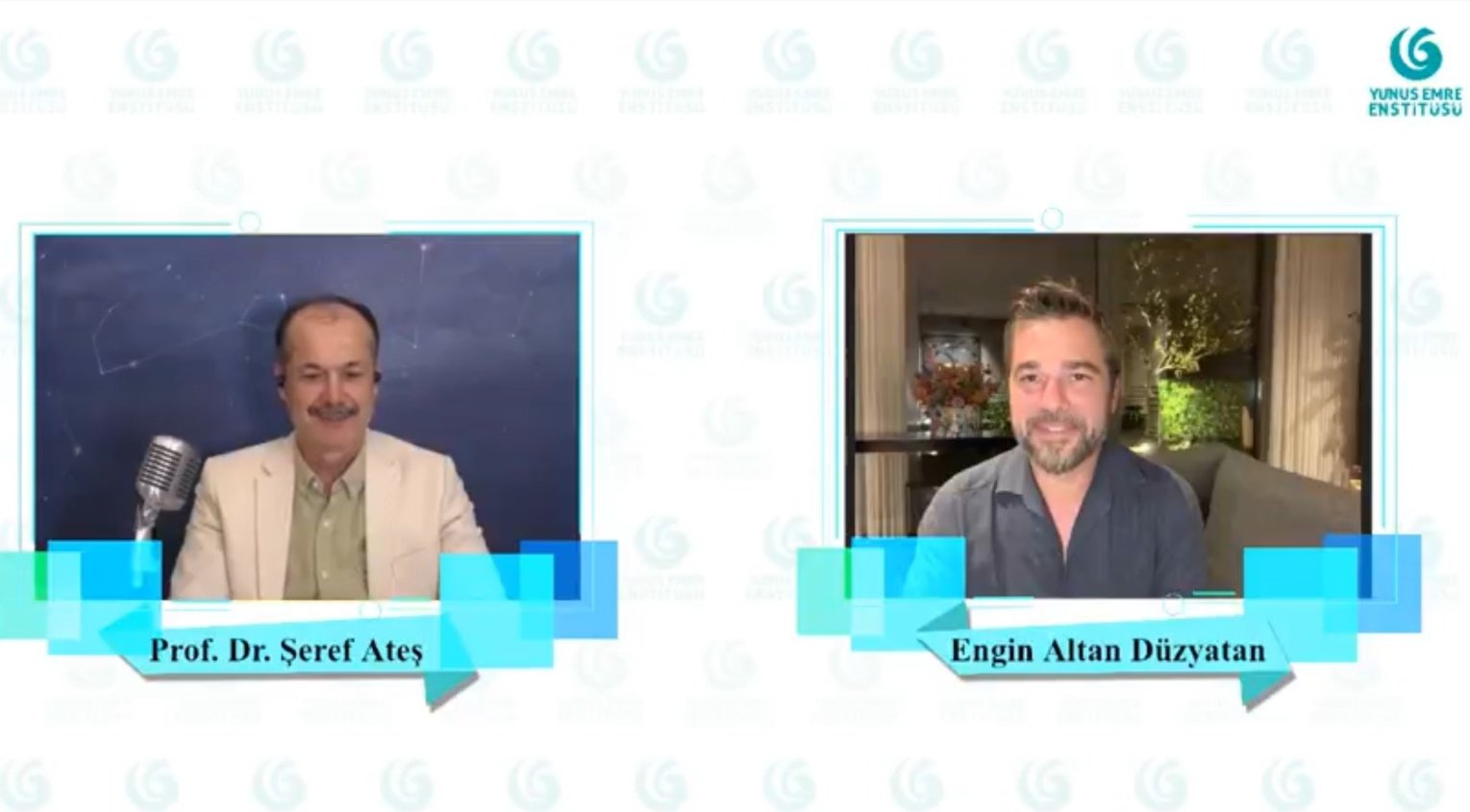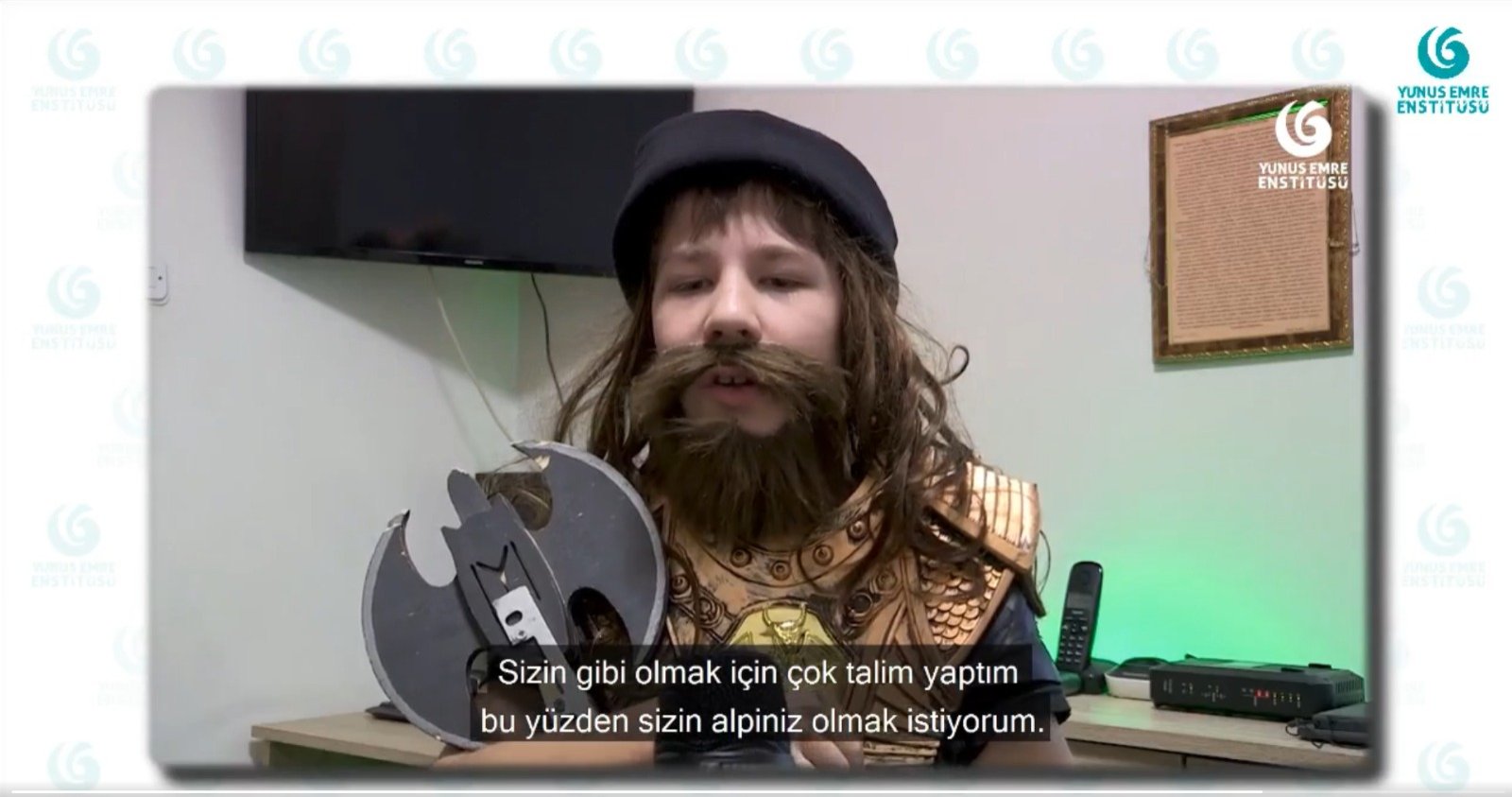© Turkuvaz Haberleşme ve Yayıncılık 2026
The lead actor of the hit Turkish drama "Diriliş Ertuğrul" (Resurrection: Ertuğrul), Engin Altan Düzyatan, met fans from all over the world through an online event organized by the country's Yunus Emre Institute.
Şeref Ateş, the head of Yunus Emre Institute, hosted the event, which aimed at bringing together fans from all over the world to meet the lead actor of the beloved series.
The event was simultaneously translated from Turkish into seven languages, including Arabic, Bosnian, English, Spanish and Russian. It was viewed by over 170,000 fans.

"Resurrection: Ertuğrul" is a TV series which sheds light on Turkish history and is currently broadcast in more than 70 countries.
Düzyatan said he has been acting for 25 years, but "Resurrection: Ertuğrul" is one of the most important.
"Just like all of the characters I have played, I have learned a lot from Ertuğrul Gazi (father of the Ottoman Empire's first leader, and Duzyatan's character). His personality, his outlook on justice, humanity affected me to a great extent," he said.
Düzyatan said emotions and feelings have no language, no matter where in the world they are experienced. "By building intercultural bonds, we can bring people from different backgrounds together to share something on mutual ground," he added.
Fans were quite impressed
Fans from all around the globe had the chance to ask questions to Düzyatan during the event.
A student from Yunus Emre Institute in Cairo, Egypt, expressed her gratitude to the TV show, and to Düzyatan himself, for portraying the character so beautifully and awakening Muslims' feelings of being connected to one another.

Another viewer from Bosnia and Herzegovina, a little fan named Bünyamin Prasovic who was wearing the traditional gear that Ertuğrul Gazi and his soldiers wear in the TV show, told Düzyatan: "I have tried so much to be like you. I would like to be your soldier."
The state-run Yunus Emre Institute works to promote Turkey's language, history and culture and has been teaching Turkish in collaboration with more than 40 cultural centers around the world.
